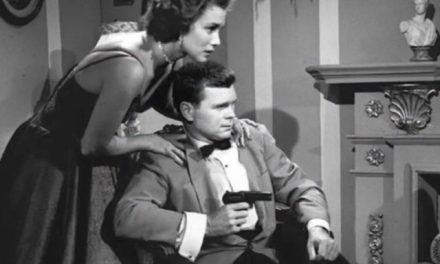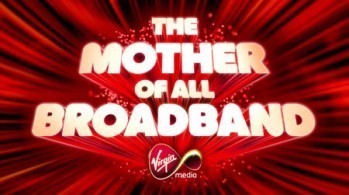In 1990, Charlotte Brunsdon wrote an article entitled ‘Problems with Quality’. It examined British television’s claims to quality and investigated in particular how specific genres and aesthetics were claimed by a number of commentators, including politicians, critics and academics, and professionals as ‘quality’. It sparked a particular, British debate about what quality might mean at a time that by others was perceived as a period of decline in standards in British television. After all, the single play, around which most judgements of high value had been made in the 1960s and 1970s, had by then pretty much come to an end.
In the wake of the American Quality TV debate, where quality has been connected to a specific audience address (Feuer 1984), generic traits (Thompson 1990) or indeed has become branded (Johnson 2007, Lotz 2008), we are sometimes forgetful that once, it was British television that was heralded as everything good in the world of television. Leave the UK, however, and people will still use the letters B B C in awe for an institution that remains the best broadcaster in the world in the estimation of many across the world. Of course, this forgets the significant contributions that the ITV franchises, and perhaps particularly Granada, made to what became defined as quality across the world: Prime Suspect (ITV 1991-2006) and Cracker(ITV 1993-1996) are dramas that I, for one, remember watching with a sense of having just encountered something superior to anything I had seen before.
But since the late 1990s, American television’s strategy to invest in programming for the (upper-)middle class of white (often male) professionals and branding this aggressively as quality across the world (‘It’s not TV. It’s HBO’) has had a severe effect on our consciousness. In this short blog, I want to address how I have been affected by it in order to be able to ask what happens when we encounter what we (particularly as critical television scholars with a history of having to engage with problematic – because gendered and classed – value hierarchies) perceive as genuinely good television. The reason why I am asking this now is because I am facing this dilemma: I am currently watching quite a bit of television that I think is genuinely good. At the same time it is perhaps a particularly pertinent moment to ask these questions as we are working in a climate where the BBC Charter Renewal and the recently published Green Paper on the future of Higher Education highlight a distinct return to conservative and at the same time radically neoliberal ideas of value which we, as academics interested in television, need to engage in. In that respect, we are ‘here again’ in a place that feels not entirely dissimilar to the environment that Brunsdon described in 1990.
But let me indulge in a bit of self-reflexion first. I have engaged quite a bit with the American Quality TV debate, usually in a highly critical way that is reflected also by the scholarship of others: Janet McCabe (2000, 2005) has written some fantastic articles on the problems that surround the quality TV debate. Her and Kim Akass’s edited collection (following on from their excellent conference in Dublin) emphasised the number of problematic ways that ideas of quality have been picked up, whilst also recognising that the movement to the quality audience has nevertheless led to some very good dramas. Due to my own research being primarily interested in aspects of the transnational relationship between the UK and the US, I have put the greatest emphasis on the discourses surrounding these dramas, in particular in relation to their assimilation into Channel 4 via its press releases and more widely via the writing of television critics. My recent ramblings about the influx of film scholars who write about television without engaging with the history of television and indeed television scholarship is similarly inflected by this issue. In other words: my main concern with the quality debate is with trying to uncover the simplistic discourses that surround ‘quality television’ in order to highlight their problematic nature and open up the debate to a more inclusive understanding to what makes television good.
At least, initially, this was the idea. However, very rarely have I actually addressed what makes television good. I tried it once with a paper on the performance of Marg Helgenberger whose style is incredibly effective even when she does, or particularly when she does, very little. So far, indeed, my focus on discussing what is good has been reduced to specific aspects of the television text – such as performance or narrative innovation. But what when you are confronted with television programmes that are overall good – well-made, but also good because they stir something at the core of the question of what it means to be human in an incredibly convincing or captivating way?
This is the dilemma that I face right now. And it’s not with drama from the US. Indeed, let me come out, I find that ‘quality television drama’ has become incredibly predictable and boring (more nude women, more graphic violence, more high spectacle – yawn). Instead, the television that I am currently thinking of as very good is largely British. In addition, it’s not even always drama, though two examples are. But they are generic crime dramas, even when they are in the trendy mould of Nordic Noir. So it’s fascinating to return to Brunsdon, and the others that followed her.
Brunsdon wrote her article in response to a public policy paper where the issue of quality had been incredibly important in determining decision-making. At the time, a fiercely Conservative government was trying to privatise the BBC by abolishing the licence fee and replacing it with a subscription service. At the same time, the ITV franchises were up for grabs, and it was here that issues of quality were debated most ferociously. Brunsdon highlights how within this debate, quality became defined in very restricted ways, focusing on elite tastes that emphasised the quality of period drama, adapted from literary sources, with actors who had a theatrical pedigree and interior design that reflected the tastes of the upper classes. Indeed, Brunsdon’s whole argument rests on a discussion of the problematic value that is attributed on the basis of class distinction, an argument that is distinctly influenced by Bourdieu’s discussion in Distinction.
The debate that followed tried to unravel what might be good and hence followed Brunsdon’s call for bringing issues of evaluation back – or perhaps more precisely – for the first time into focus in our field. But it was a short-lived debate, and one which was, perhaps not unreasonably, worried about infantile disorders or pre-structuralistdangers too. And it was soon subsumed by the response to the branding of quality in television. Such a shift in direction was crucial at that moment, and represented a critical engagement with what Brundson termed ‘practical quality’: it was a recognition that value judgements are being made in the industry, in the distribution and the consumption processes all the time, and we needed to unpick those in order to highlight the problems that they contain. In this undertaking, we followed Bourdieu’s and Brunsdon’s recognition of the subjective and relative nature of value judgements.
But I want to return to something else that Brunsdon discusses towards the end of her article when she reflects on her reading experience of the edited collection of Raymond Williams’s critical work for The Listener. It is interesting to note that Raymond Williams is experiencing a bit of a renaissance at the moment, with several scholars returning to his concept of the structure of feeling, and Critical Studies in Television itself engaging with ephemeral media in order to ask questions about flow. So let’s return to his critical work as well. Brunsdon summarises her reaction to this in two particularly touching paragraphs:
The aesthetic Williams develops, then, is formed within the two major cultural traditions of the West. It is a profoundly realist aesthetic, in that he believes strongly in the capacity of television to tell us about the world we live in, to extend our knowledge of cultures not our own, and enable us better to understand our own. Sometimes he can be very sharp about the way in which the medium which he conceives as potentially democratic and socially extensive is used: ‘All I have to say, there, is that nobody would believe there are 56 million people in Britain we see and hear so few of them’ (p.42.). However, it is also a modernist aesthetic in that it demands that form follow function and that television develop its own specificity. Williams has least time for productions which merely reproduce existing cultural habits and values.
Williams’s class confidence, and his belief in the value of education and argument leads him to the new minority channel, BBC2, without embarrassment. I think I was struck by discovering how much he liked this channel because I have, in the 80s, become accustomed to a type of academic populism in relation to television. It is not that I want to go all the way with ‘serious television’ if it means I can never watch television casually, but I like the construction of a cross-generic category which takes leisure and pleasure seriously, which makes demands on the programme makers – however I choose to watch. (p. 88)
What is so fascinating about this summary for me is that, even for Brunsdon, writing in the late 1980s, over 25 years ago, this ‘belief in values of education and argument’ had been eroded to the point where it surprised her, partially, as she shows, as a result of the institutionalisation of TV Studies. Brunsdon’s call for bringing issues of evaluation into our field is then precisely an attempt to make institutionalised television studies open enough for such a belief so that we can intervene into the otherwise Conservative debate about quality. And it is here that the radical potential of a return to quality still lies, in my eyes. But my response to how this can be achieved is, I think, different.
Brunsdon struggles with the subjective and aims to find a way where the subjective can become less so. But I actually think it’s in the subjective where the power to subvert current discourses of value lies. However, the subjective is at the same time the universal. In order to make this point, I have to return to my own preferences. The programmes that have caught my imagination, perhaps not dissimilarly to Williams’s liking of BBC2, are precisely those that, for me, include a value of argument: they are, fundamentally, discussing, investigating, what it means to be human. Y Gwyll/Hinterland(S4C/BBC, since 2013) and River (BBC 1, since 2015) do this via the familiar genre of the crime drama. But the questions they ask are about significantly more. Y Gwyll examines in particular parent-child relationships: what does it mean to be a parent, what does it mean to be a child? What does it feel like to be this in difficult circumstances? River asks questions about other relationships, and constantly returns us to the fragility of life and the pain that lies in the impermanence of all life and relationships. Both are beautifully shot, emphasising their particular theme through the haunted imagery of a desolate Welsh countryside and the layered surfaces of London respectively. On the other hand, A Very British Romance with Lucy Worsley examines in a light-hearted fashion one of the most pleasurable things about being alive: our ability to fall in love, and to love (see also Jamila Balluch’s recent blog post on this theme). All of these programmes allow space to play these questions through, to feel them, experience them. For me, these are special programmes because they engage with things that matter to me. I understand, from the reactions that I have had whenever I mentioned one of these programmes, that I am not the only one (so clearly my subjective experience is replicated in others), but this is not about an objective or non-subjective value that Brunsdon seemed to look for (or perhaps I do her a disservice here). What, however, my understanding of the value that I place on these programmes highlights is that this is a humane value. This is not monetary, not generic, not branded, not even, necessarily, particularly cultural, though my preference for a particular presentation of this (like Williams’s) is definitely classed.
River’s textured imagery emphasises the sense of simultaneity of the ‘manifests’ that remain of the dead.
For a bit more light-hearted viewing that is nevertheless entirely insightful, see A Very British Romance
In respect to understanding television as containing a humane value, I understand television as an art form that
Can allow us to live through experiences that have never happened to us in ‘real’ life, letting us grow through them and learn from them almost as though they had been our own. Through a play, novel or poem [or a good TV programme] we can enter into the world, the thoughts, and the feelings of another person. We can know what it is like to be them, and we can develop a sense of sympathy for them. … This broadening of our experience and our ability to identify with others is a very real expansion of our being. (Vadanya 2013)
Such an ability of art and television to expand our horizons and experiences is of course connected to our individual knowledge horizons, some of which are determined by cultural and social ones, and is thus completely subjective: for some, it will be River, for others, it will be The X Factor (ITV, since 2004). But the value itself, which is about personal growth and the ability to experience what it means to be a human being, remains universal.
This is why I believe that a redirected debate about the quality of television might be revolutionary: it allows us to undermine the current debates that ultimately return every value to that of money. It might allow us to make arguments about the quality of the BBC as a public service broadcaster that enhances and enriches our lives as human beings (who do not necessarily know what they need to be challenged about) rather than as consumers with money to spend on what we want. And it might help us to redirect debates about our own subject area, particularly if this is taught as a practical programme: NSS scores for these programmes are notoriously low – often as a result of having to work in groups – which makes them a liability in an environment where NSS scores are key to the ability for universities to raise fees and hence look like the ‘quality’ institutions we all aspire to be. But, and this is what my viewing of these and many more programmes has highlighted, quality in the arts and in public service is not about money, and cannot be measured in money because it is subjective, and fundamentally connected to our experience of being alive.
I’d like to dedicate this blog to all the inspiring people I have met or read in recent years, and with whom I have been able to speak about television as good. There are too many to mention here, but please be sure I mean you all!
Elke Weissmann is Reader in Film and Television at Edge Hill University. She is currently considering changing this to Reader in Television and Film, however. Her books include Transnational Television Drama (Palgrave) and the edited collection Renewing Feminisms (I.B.Tauris) with Helen Thornham. She is vice-chair of the ECREA TV Studies Section and sits on the board of editors for Critical Studies in Television. She migrated to the UK in 2002 after realising that German television was as bad as she remembered.






